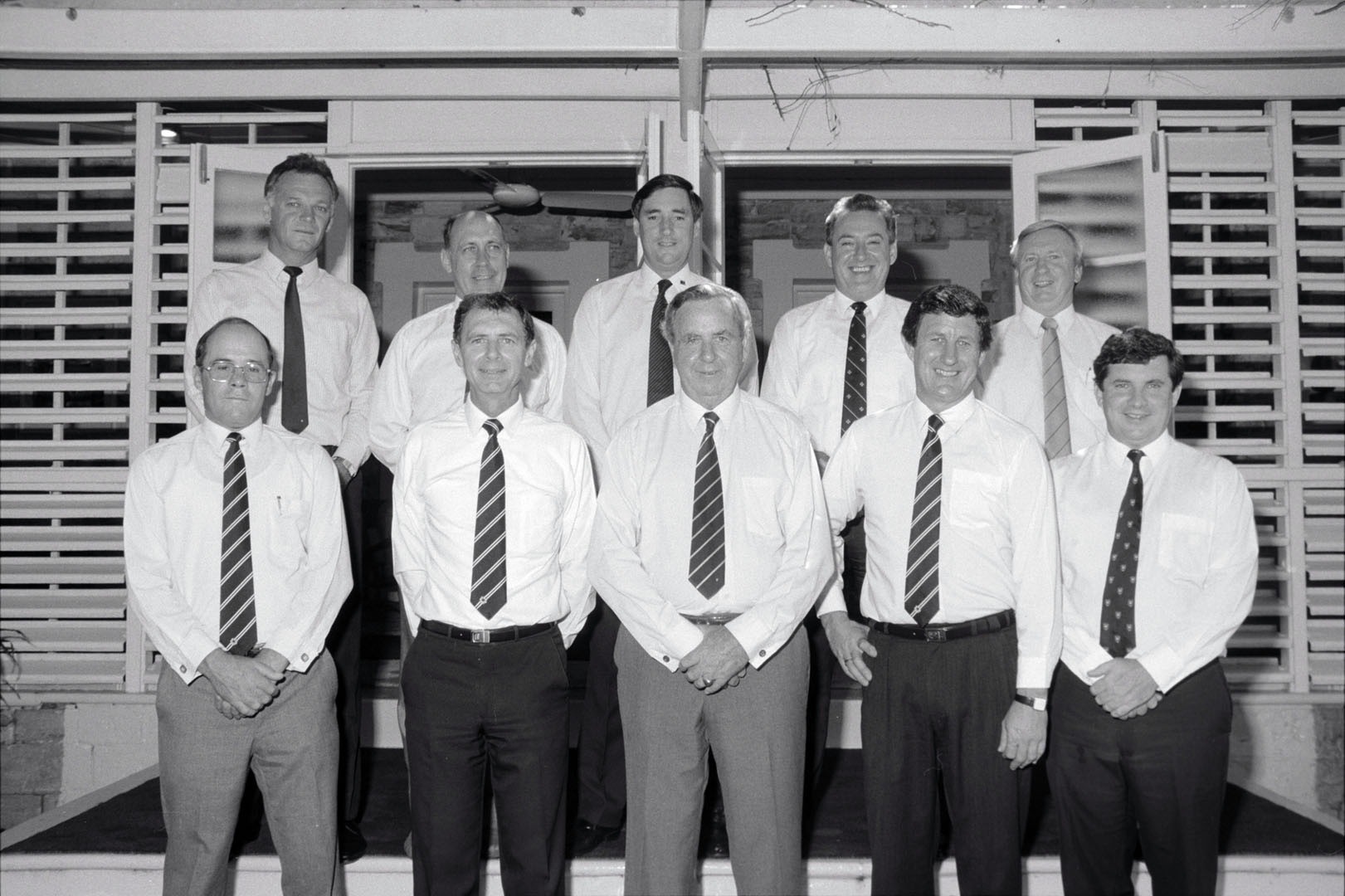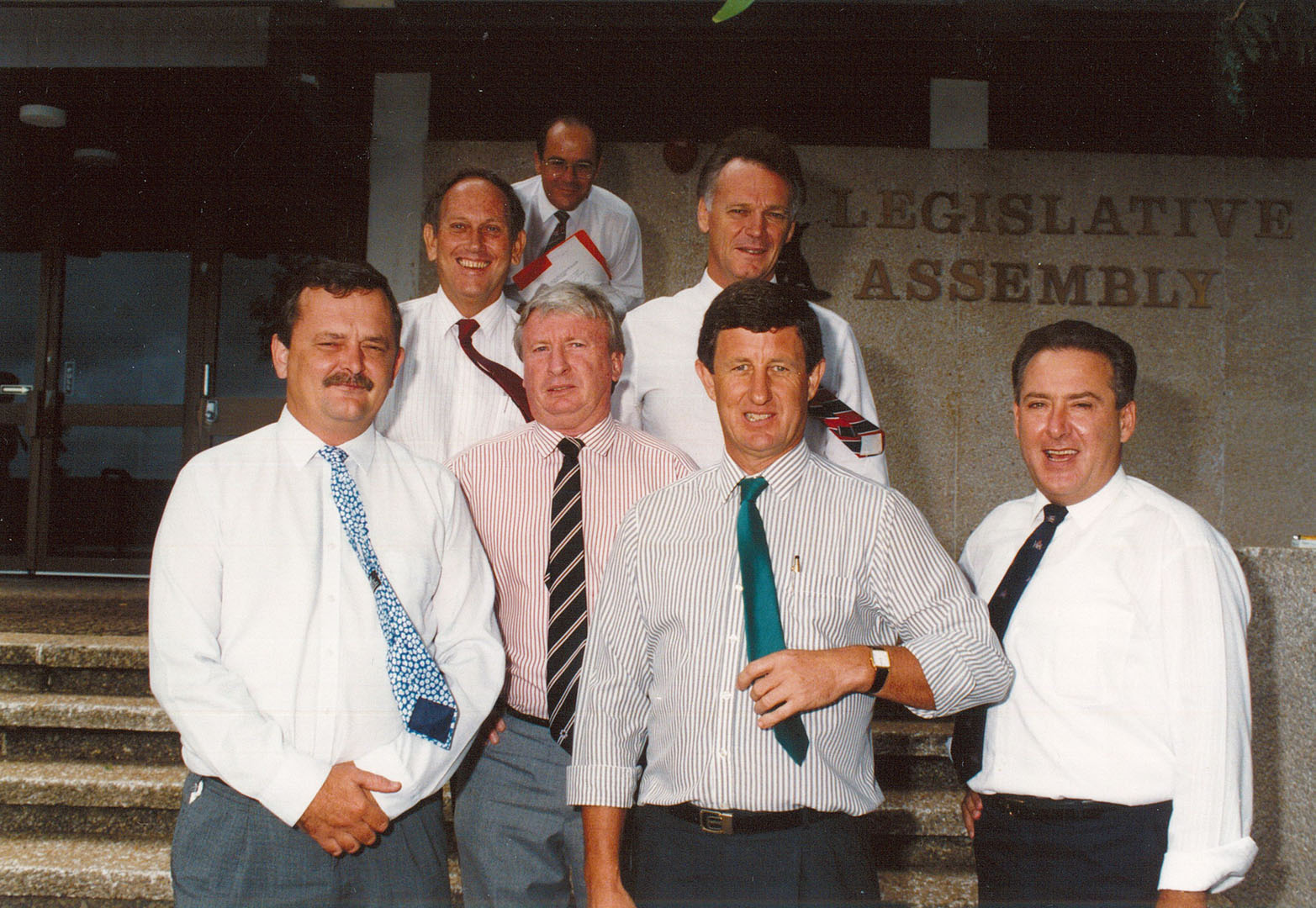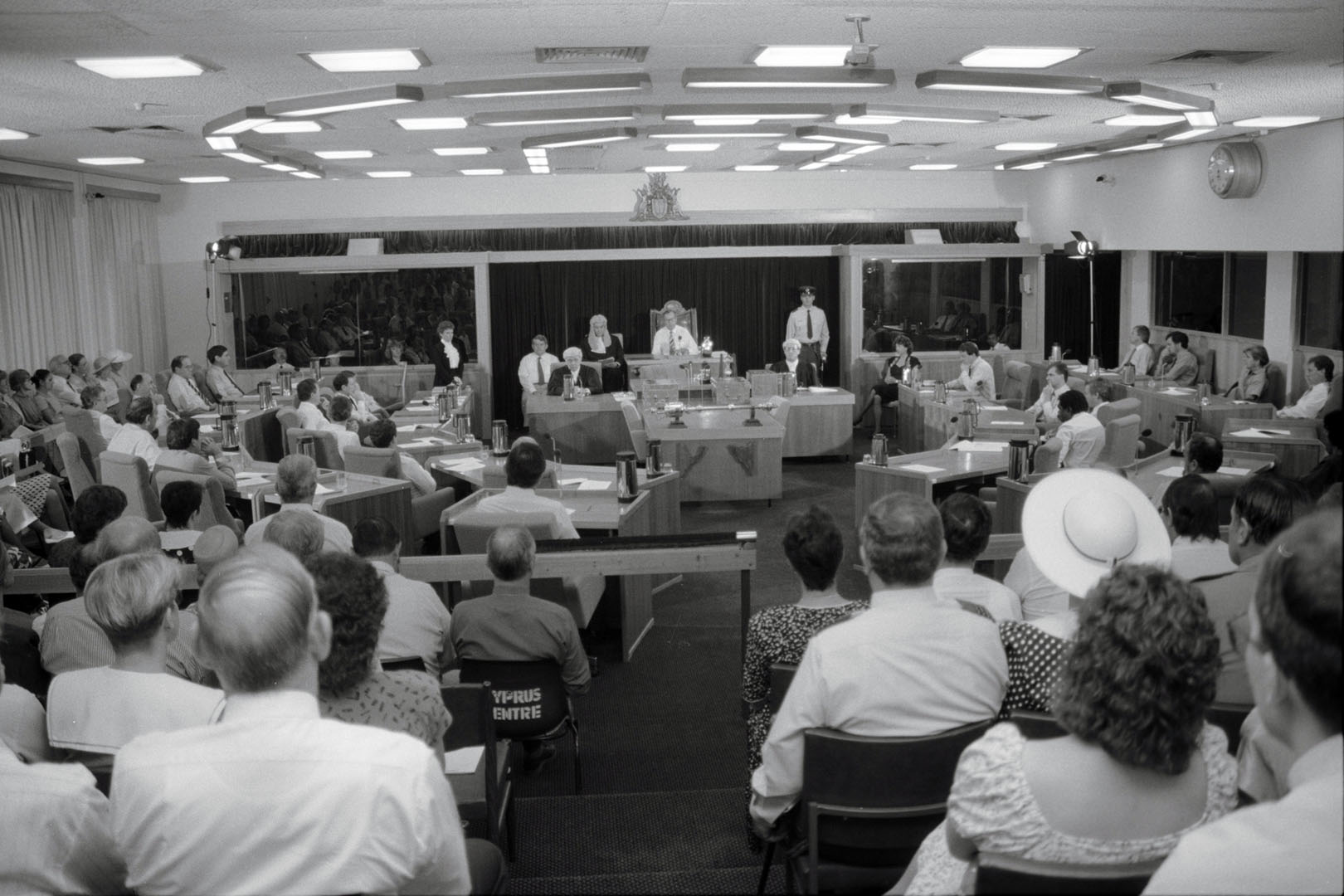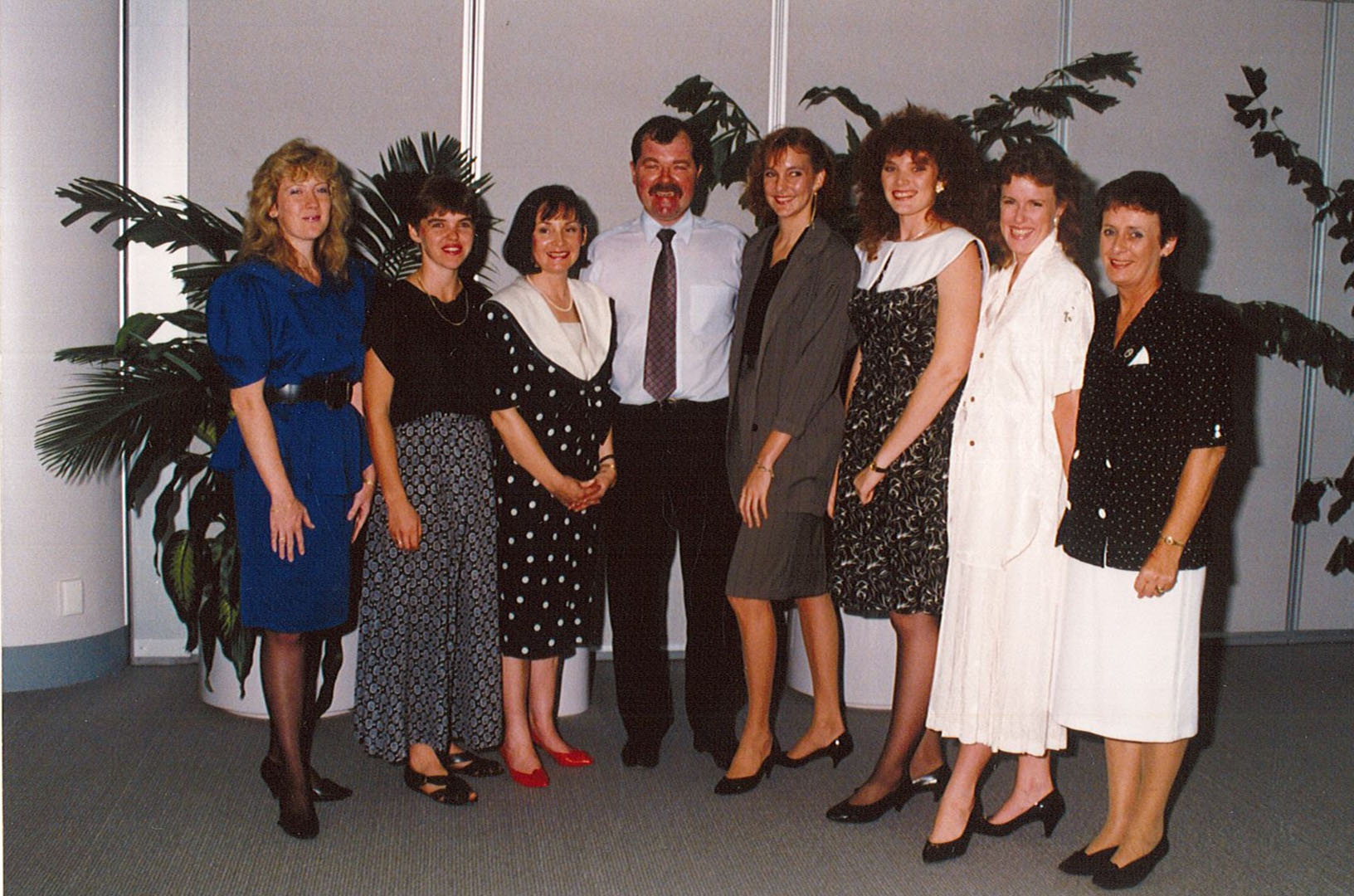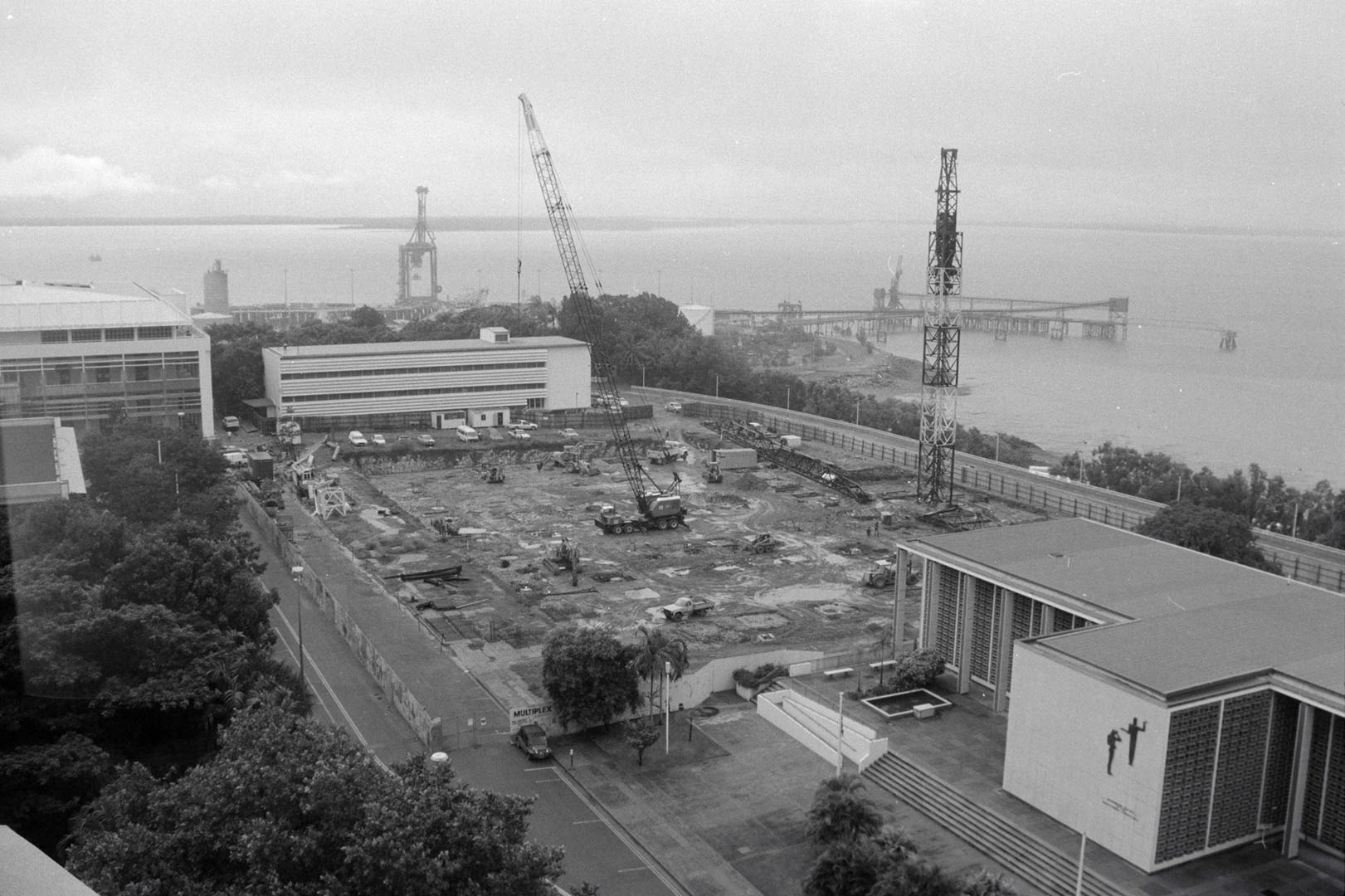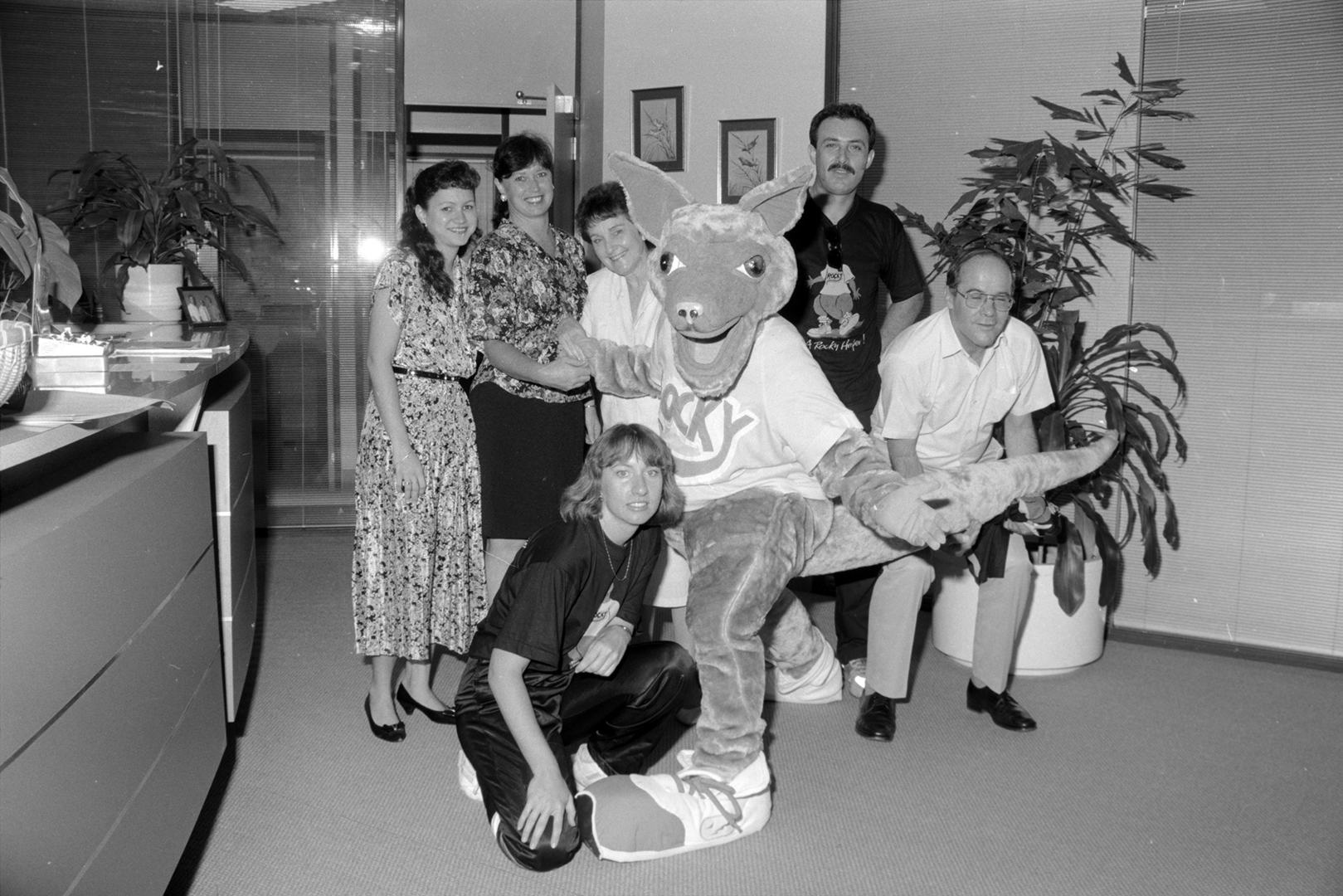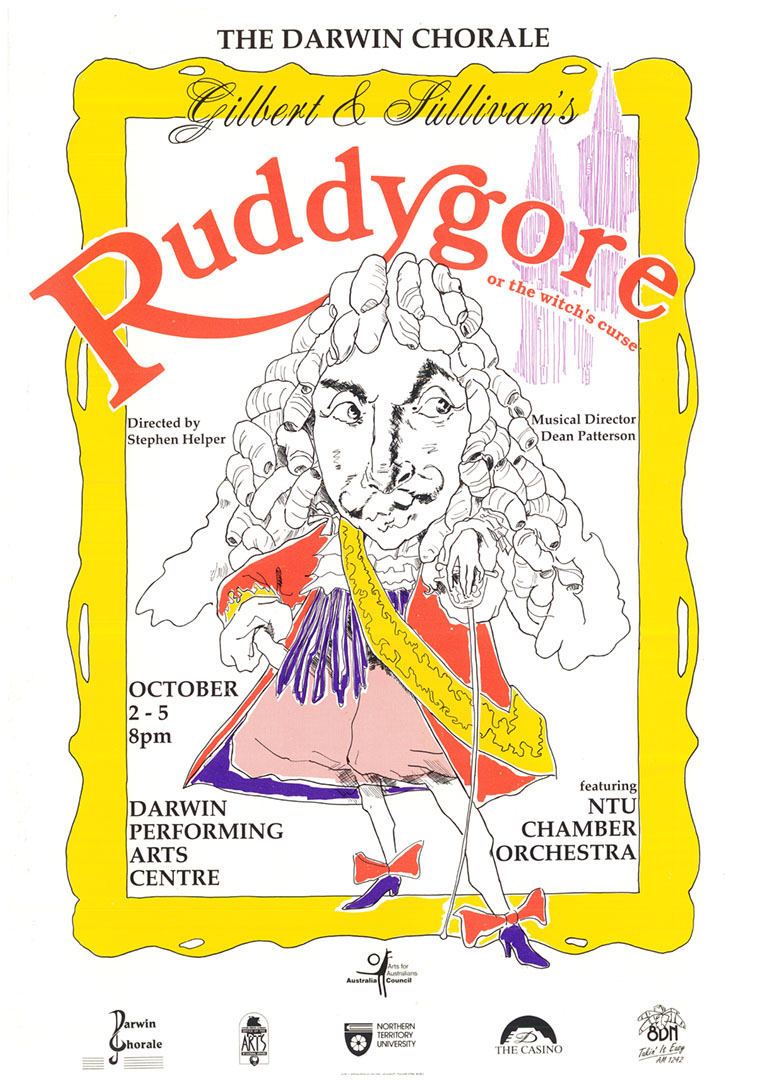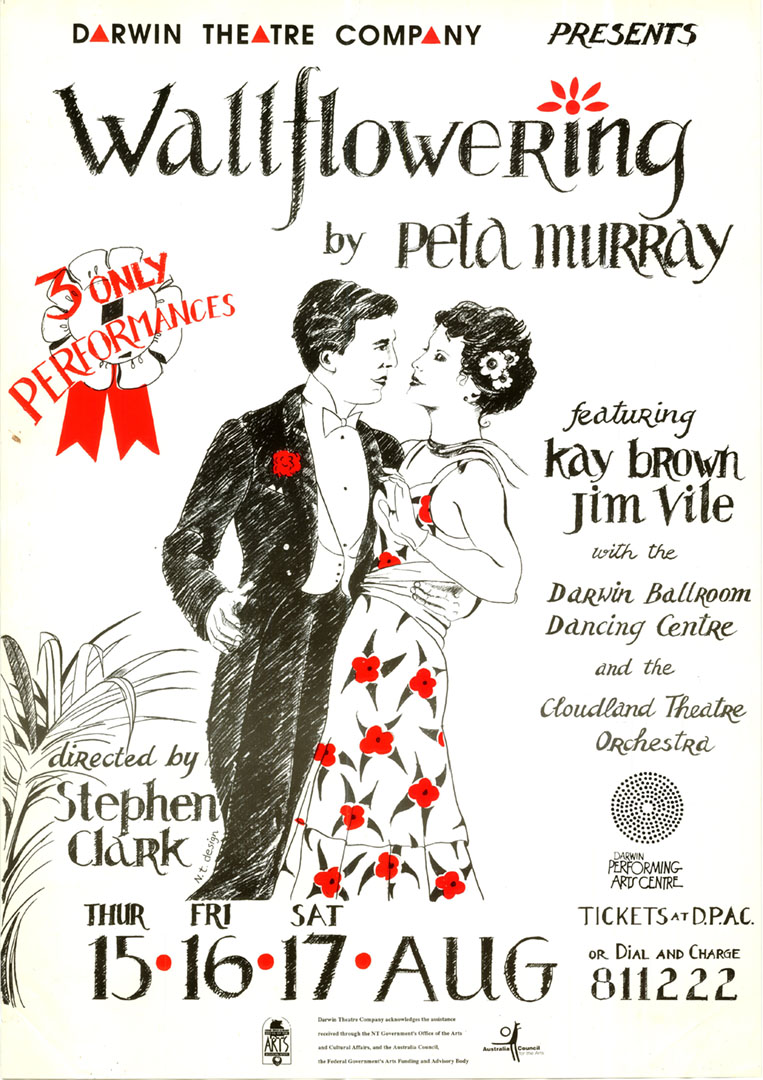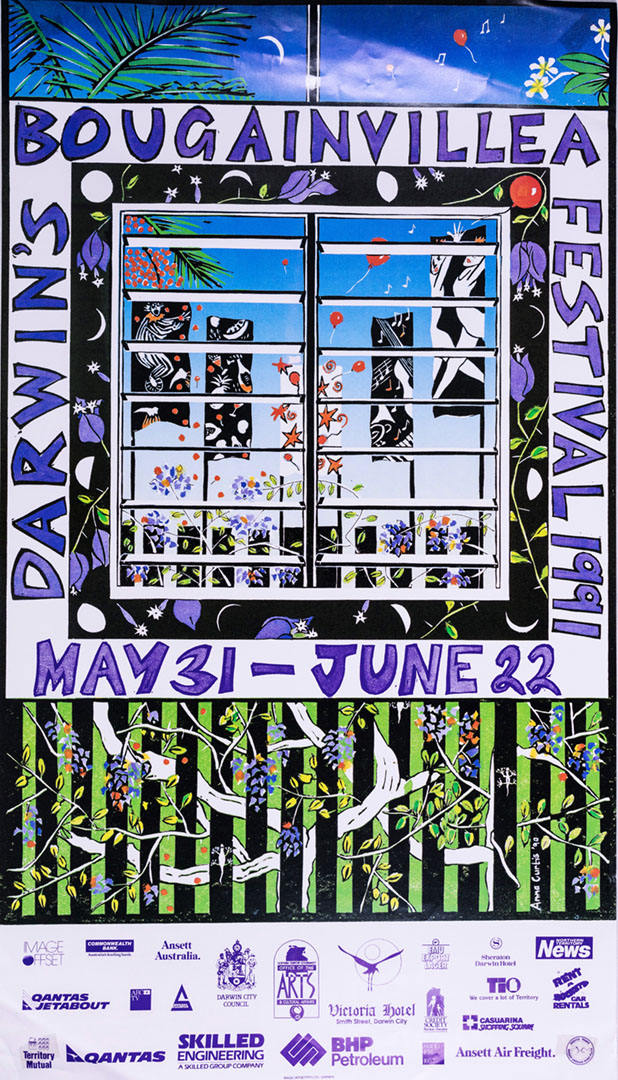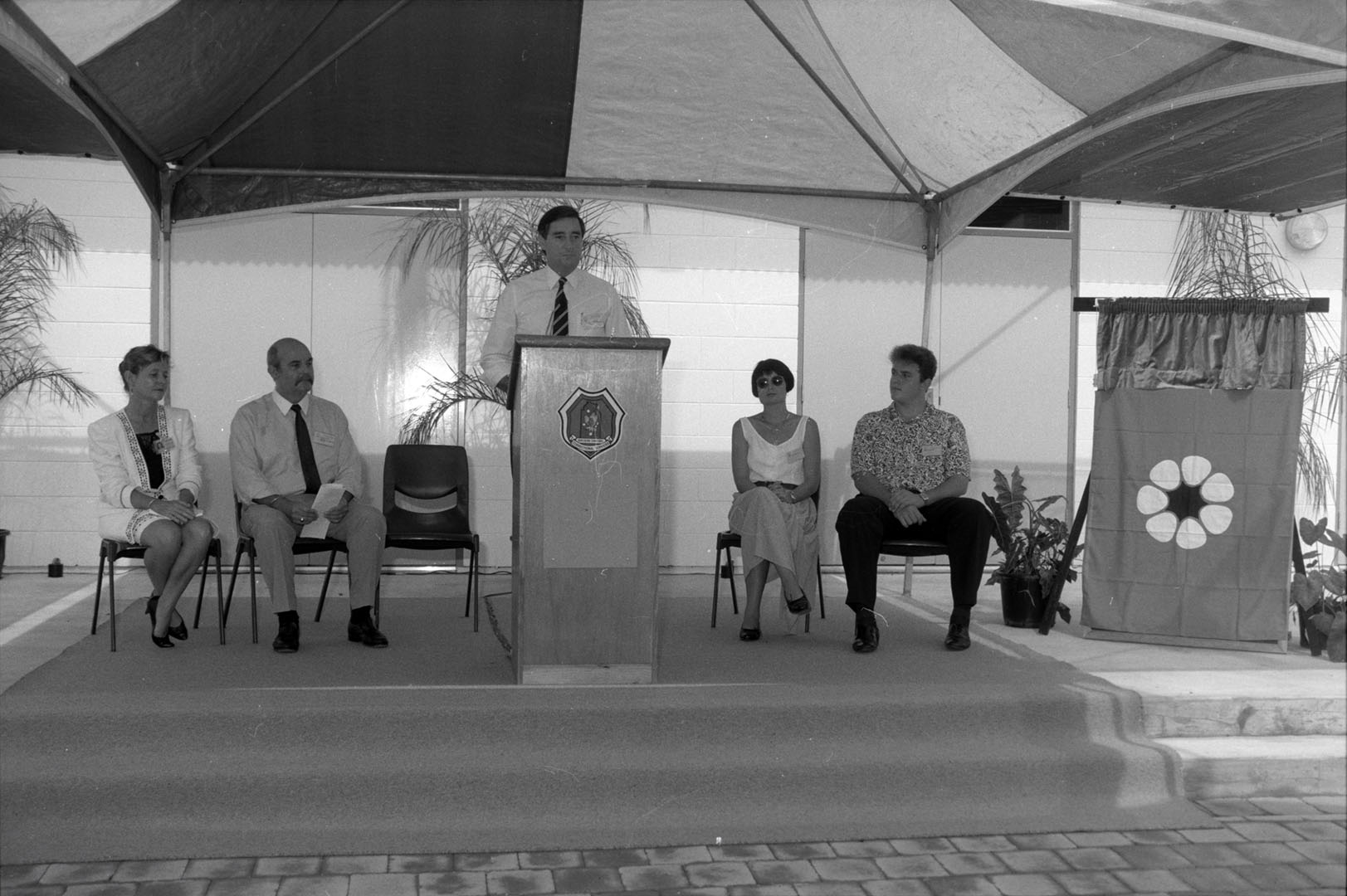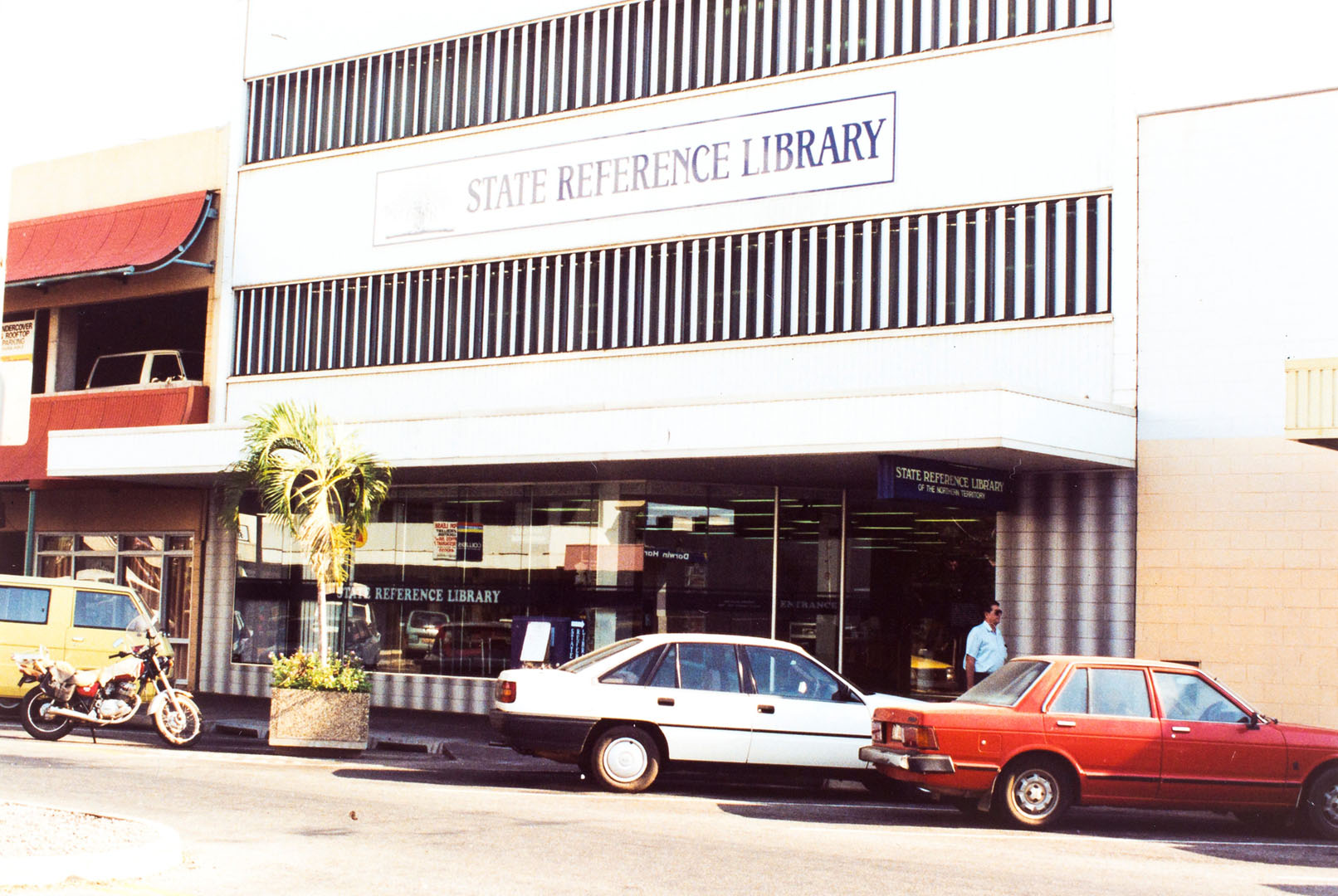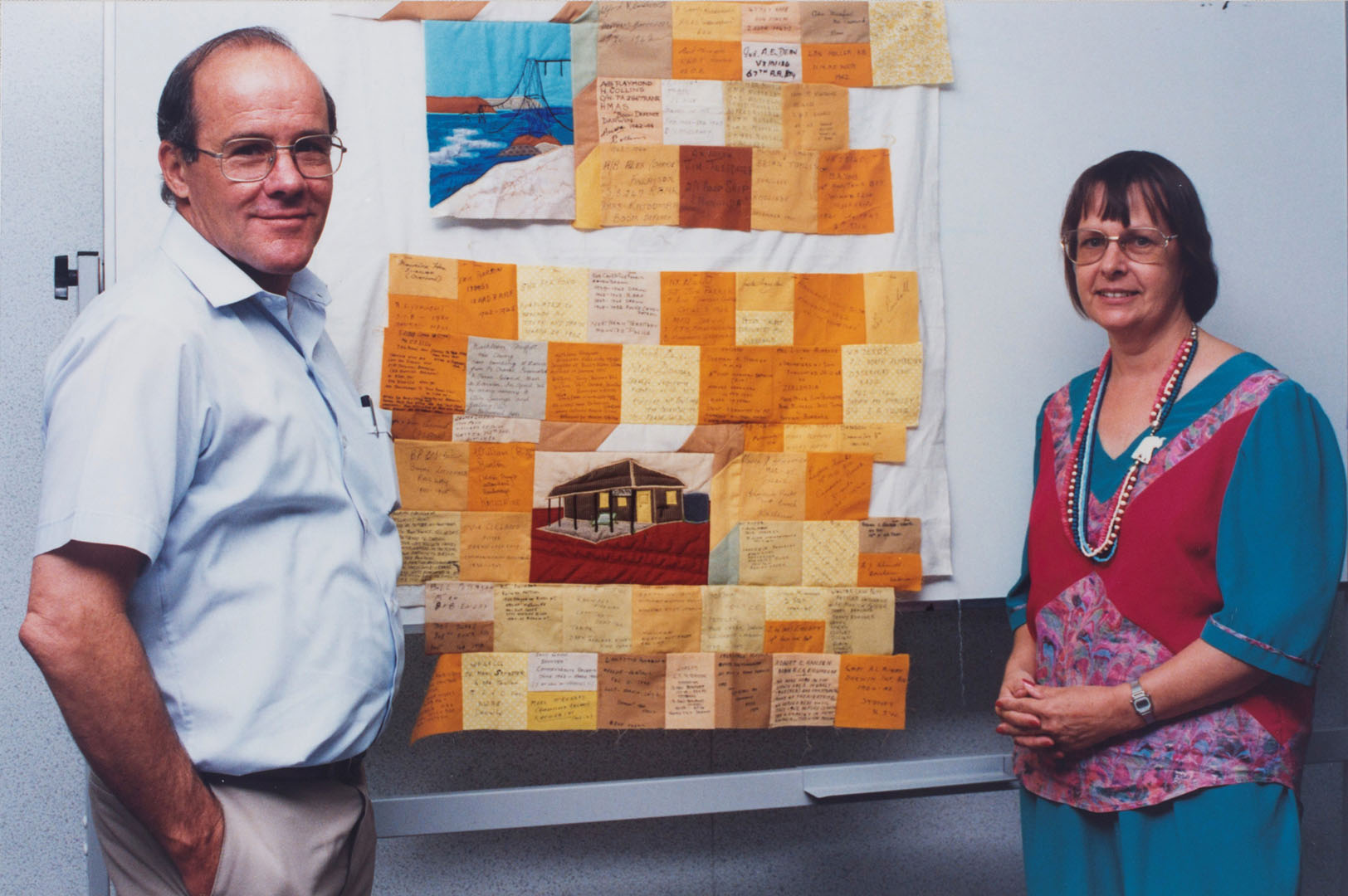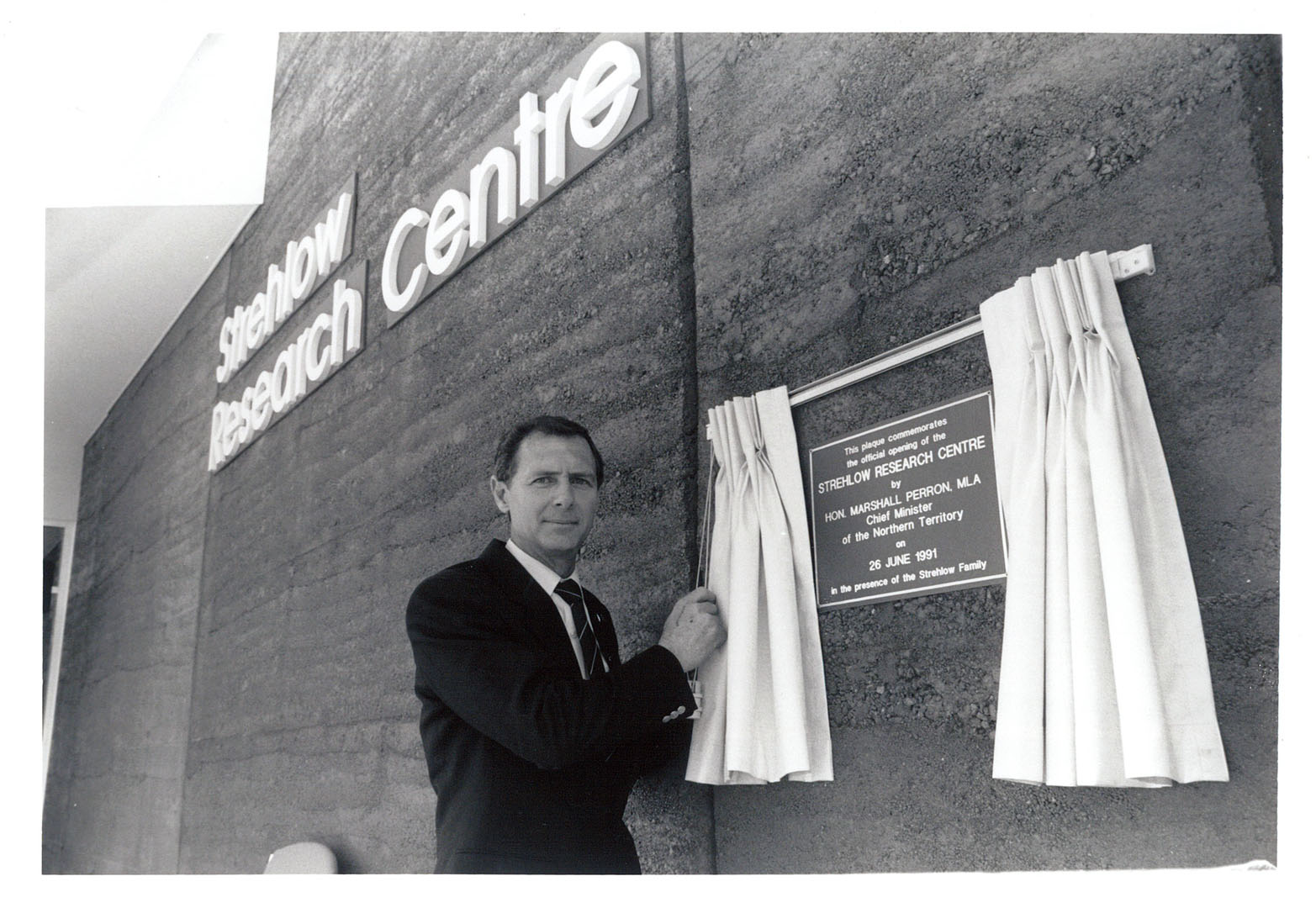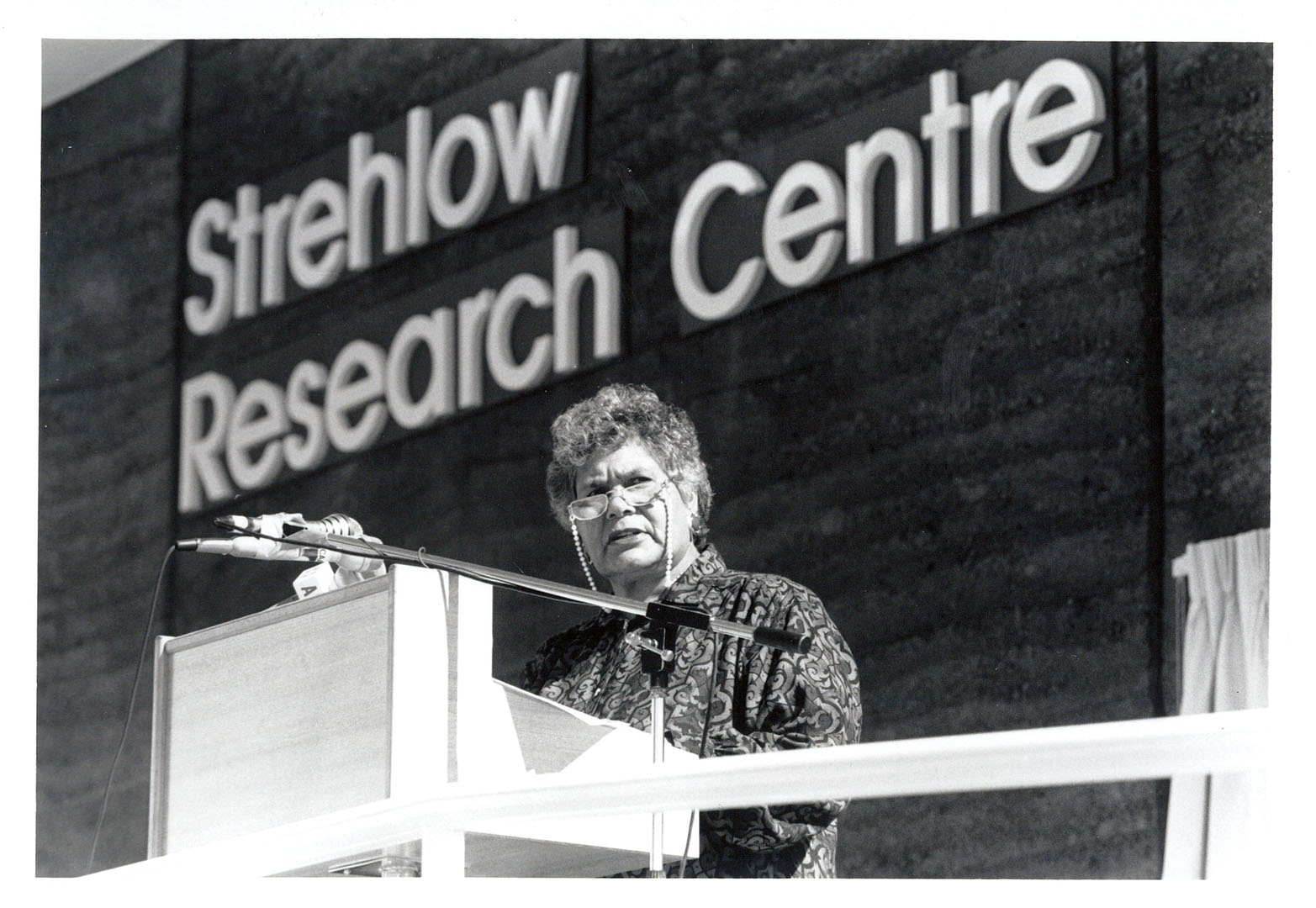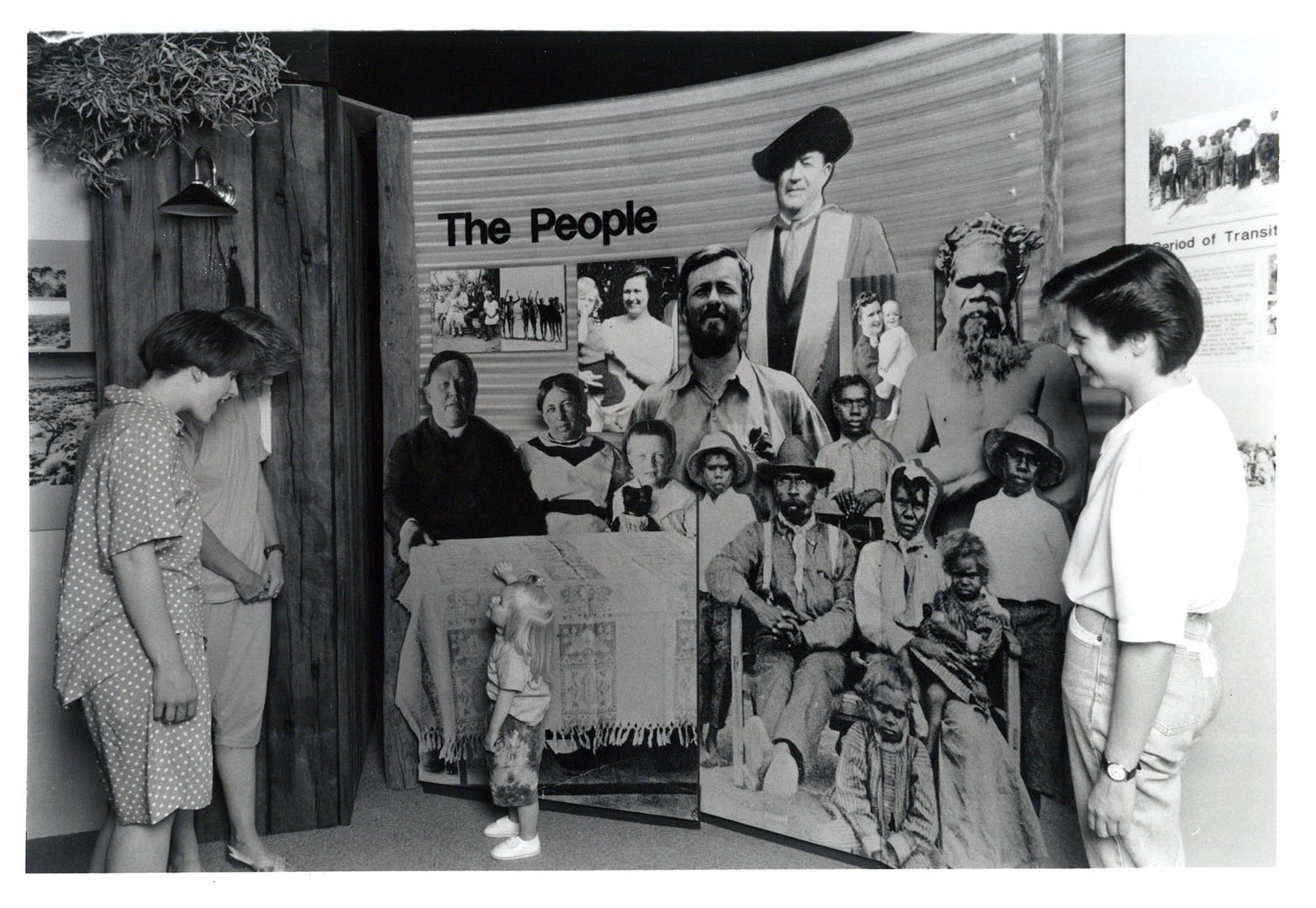Records 1991
About 1991
Highlight information about some key moments and events that happened locally in the NT, across Australia and internationally in 1991.
Local
January - Ansett airlines first ever January sale offers discounted airfares from Darwin to Alice Springs reduced from $648 to $299 and Darwin to Sydney was reduced from $1,156 to $499.
18 May – The inaugural Arafura Sports Festival begins in Darwin bringing together 20 teams from Australia and South East Asia to compete in more than 20 sports.
26 June – The Strehlow Research Centre, housing ethnographic collections of film, sound, archival records and objects relating to Indigenous ceremonial life of the Arrernte people of Central Australia, is opened in the Araluen Precinct Alice Springs.
28 June – FM Radio station Hot 100 goes to air in Darwin.
18 October – Kings Canyon Resort on Luritja Road via the Lasseter Highway between Alice Springs and Uluru, Central Australia is opened.
29 November – The new Supreme Court building, part of the State Square project, is officially opened by the Administrator the Honourable James Muirhead AC QC.
National
2 January - Warship HMAS Westralia leaves for the Persian Gulf.
10 January – amongst escalating fears of full- scale war with Iraq, Australia orders its diplomats out of Bagdad.
14 January – a flood emergency is declared in the Queensland Gulf Country.
17 January – Prime Minister Bob Hawke gives battle orders to the Navy stationed in the Persian Gulf, following discussion with US President George Bush and the commencement of US air strikes on Iraq the day before. In the week following, peace marches across Australia demand for the withdrawal of Australian forces from the Gulf.
On 22 January at a special sitting of Parliament, a resolution supporting Australia’s commitment to the Gulf War is passed, however seven Labor MHRs and three Senators join the Democrats in opposition.
26 January – Professor Fred Hollows, an ophthalmologist who became known for his work in restoring eyesight for thousands of people across the world, is named Australian of the Year.
9 May – the Report of the Royal Commission into Aboriginal Deaths in Custody is released. No criminal charges were recommended, nor was compensation for victims’ families, but changes were recommended to the way Aboriginal people were dealt with when in police custody.
3 June– after revelations of an agreement between Treasurer Paul Keating and Prime Minister Bob Hawke about the leadership of the Australian Labour Party, Paul Keating makes his first challenge against Bob Hawke. Hawke wins 66-44 and Keating resigns as Treasurer. Brian Howe becomes deputy Prime Minister and John Kerin becomes Treasurer. Simon Crean is promoted to the position of Primary Industry Minister.
4 July– Leading Sydney heart surgeon Dr Victor Chang is shot and killed near his home in the Sydney suburb of Mosman. His murder is the result of a bungled kidnapping and extortion attempt.
August - The census conducted in August 1991 revealed that Australia’s population stood at approximately 17 million people. Of people counted in Australia 54.3% were aged less than 35 years and 11.3% were aged 60 years or older. The median individual income in Australia was $13, 950 and median annual household income was $29, 377. The median housing loan repayment was $563 per month, and median weekly rental was $110.
15 September – Federal Leader of the Opposition John Hewson reaffirms a consumption tax (Goods and Services tax), as integral to the Coalition’s electoral strategy.
24 September – the perjury trial of former Queensland Premier Sir Joh Bjelke-Petersen begins in Brisbane, ending in a hung jury 10:2. Prosecutors decide against a retrial on the basis of Joh’s advancing age and divided public opinion.
October to December – a devastating blue- green algal bloom occurs in the Darling River and the NSW government declares a state of emergency following the deaths of over a thousand livestock from severe drought.
19 December – Paul Keating makes his second attempt at the Labour leadership, and wins the challenge 56-51 to become Australia’s 24th Prime Minister.
International
24 January – the Government of Papua New Guinea signs a peace agreement with separatist leaders from Bougainville Island, bringing an end to fighting which had been ongoing since 1988.
29 January – in South Africa, Nelson Mandela of the African National Congress and Mangosuthu Buthelezi of the Inkatha Freedom Party agree to end violence between the two organisations.
18 February – the provisional Irish Republican Army launches a mortar attack on 10 Downing Street during a British Government Cabinet meeting and later explode bombs at Paddington and Victoria Tube stations London.
26 February - Iraqi leader Suddam Hussein announces withdrawal of Iraqi troops from Kuwait. Iraqi soldiers set fire to Kuwaiti oil fields as they retreat. These fires last until November. The US President George Bush declares victory over Iraq and orders a cease fire, and US troops begin to leave the Persian Gulf in March.
15 April – The European Economic Community lifts economic sanctions on South Africa.
18 April – As required in Resolution 687, Iraq declares some of its chemical weapons and materials to the UN, claiming that it does not have a biological weapons program.
19 April – A tropical cyclone hits Bangladesh, killing an estimated 138,000 people.
5 June – South Africa repeals the last legal foundations of apartheid.
12 June – Boris Yeltsin is elected President of the Russian Soviet Federative Socialist Republic.
15 June – Mount Pinatubo in the Philippines erupts, with the final death toll exceeding 800.
25 June – Croatia and Slovenia declare their independence from Yugoslavia.
1 July – the world’s first GSM (Global System for Mobile Communications) telephone call is made in Finland.
6 August – Tim Berners-Lee announces the World Wide Web project and software.
August – the Dissolution of the Soviet Union unfolds with the restoration of the white-blue- red tricolour flag to Russia, and subsequent declarations of independence for the countries of Estonia, Latvia, Ukraine, Moldova, Kyrgystan, Uzbekistan, and Tajikstan.
12 November – Indonesian troops open fire on a group of mourners and pro-independence demonstrators at the Santa Cruz Cemetery in Dili, East Timor during the Indonesian occupation of East Timor (Timor-Leste).
26 December – The Soviet Union is formally dissolved also ending the Cold War.
Popular culture and everyday living
17 January – Seven TV Network breakfast program Sunrise makes its first broadcast.
23 January– Billy Joel arrives for his Australian The Storm Front Tour, playing in Sydney, Brisbane, Melbourne, Adelaide and Perth.
10 February – Animated comedy series The Simpsons, from the United States debuts on Australian TV Network Ten.
15 March – Steve Vizard wins the Gold Logie award for TV entertainment.
3 June – Warner Bros. Movie World on the Gold coast in Queensland is opened.
23 June – Sega releases Sonic the hedgehog for Sega Genesis home video game console.
16 July – Australian live comedy and music series the Big Gig airs its final episode on ABC TV.
September – TV mini-series Brides of Christ goes to air on ABC TV, winning Logie awards in the following year for most popular telemovie or mini-series, amongst others.
September – Yothu Yindu, rock band from East Arnhem Land, release their second studio album Tribal Voice, which includes the single ‘Treaty’. This album broke new ground bringing the voice, language, stories and issues of Indigenous people to local and international attention.
24 September – on the same day, rock band Nirvana, release their breakout album Nevermind, and the Red Hot Chilli Peppers, release Blood Sugar Sex Magik.
24 November – Freddie Mercury, lead singer of British rock band Queen dies in London. On the same day Eric Carr drummer from American bank Kiss dies of heart cancer in the US.
3 December – American sitcom The Fresh Prince of Bel-Air starring American rap artist Will Smith makes its debut on Australian TV for the Nine Network. The series launched Smith’s career as a star of television and later film.
International movie releases include the The Silence of the Lambs, starring Jodie Foster and Anthony Hopkins; Terminator 2: Judgement Day, starring Arnold Schwarzenegger and Linda Hamilton; Disney animation Beauty and the Beast; Thelma and Louise, featuring Susan Sarandon and Gena Davis; Cape Fear directed by Martin Scorsese starring Robert De Niro, Nick Nolte and Jessica Lange; comedian Billy Crystal featured in the western comedy City Slickers and musical comedy-drama The Commitments with its popular soundtrack returns the 1965 song ‘Mustang Sally’ to the popular music charts.
In Australia the top five popular music singles listed by the Australian Recording Industry Association included Bryan Adams, ‘Everything I do I do it for you’, Ratcat EP ‘Tingles’, the ‘Grease Mega-mix’ combining songs from the 1978 movie Grease; Daryl Braithwaite ‘The Horses’ and Guns’n’Roses hit single ‘You could be mine’.
In 1991 music bands such as Nirvana set the trend in fashion with blue denim jeans, tee shirts, cardigans and sweaters, cord jackets, polos and Converse shoes. Denim was ripped, knitwear was ragged, and hair was worn long and floppy, flattop or the ‘messy blowout’ style popularised by Cindy Crawford.
References
NT News, 3 January 1991.
Office of the Administrator, Northern Territory Chronicle 1974-1999, NTU 1999
1991 in Australia - Wikipedia (https://en.wikipedia.org/wiki/1991_in_Australia)
Best Films of 1991 - IMDb (https://www.imdb.com/list/ls052109271/)
https://en.wikipedia.org/wiki/1991
https://en.wikipedia.org/wiki/Fred_Hollows
https://www.abc.net.au/doublej/music-reads/ features/7-australian-albums-from-1991-worth-revisiting/10269202
https://www.90sfashion.com/1991-fashion-trends/
2101.0 - Census of Population and Housing, 1991 (abs.gov.au)
https://www.abc.net.au/news/2021-11- 21/nt-timor-leste-ceremony-santa-cruz-massacre/100620968?utm_campaign=abc_news_ web&utm_content=link&utm_medium=content_shared&utm_source=abc_news_web
https://en.wikipedia.org/wiki/Santa_Cruz_massacre
Dry Paddocks, Damp Policies: Drought Assistance Strategies and their Effectiveness – Parliament of Australia (aph.gov.au)
Print all pages in this section
Give feedback about this page.
Share this page:
URL copied!
